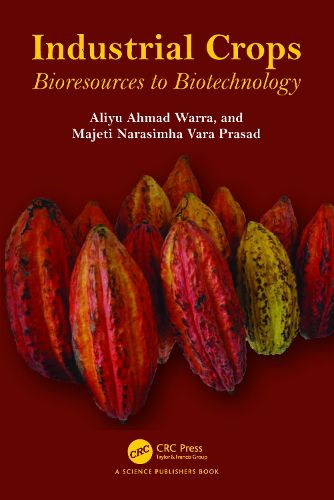Readings Newsletter
Become a Readings Member to make your shopping experience even easier.
Sign in or sign up for free!
You’re not far away from qualifying for FREE standard shipping within Australia
You’ve qualified for FREE standard shipping within Australia
The cart is loading…






This book captures how industrial crops can be used in conventional agriculture and greener biopharming for pharmaceutical industries. Pharmaceuticals and industrial compounds are studied from the perspective of their co-existence with plant resources and byproducts. Such plant-based industrial products rely on scientific and technological breakthroughs and provide new opportunities for the agricultural sector, at the same time mitigate the risks associated with climate change. The management of the externalities and of the possible unintended economic effects that arise in this context is critical and poses difficult questions for regulators. The book also provides a review of the emerging agro-industrial biomass technology involved in conversion of most of the solid transgenic industrial crops by products such as plant oil lignocellulosic materials into liquid biobased energy-fuels. The book covers how innovative biotechnology can expand the markets for agricultural producers worldwide, reduce environmental degradation, and provide alternatives to fossil carbon-derived products and energy. Aspects of entrepreneurial biotechnology and bioprospecting are also covered.
$9.00 standard shipping within Australia
FREE standard shipping within Australia for orders over $100.00
Express & International shipping calculated at checkout
Stock availability can be subject to change without notice. We recommend calling the shop or contacting our online team to check availability of low stock items. Please see our Shopping Online page for more details.
This book captures how industrial crops can be used in conventional agriculture and greener biopharming for pharmaceutical industries. Pharmaceuticals and industrial compounds are studied from the perspective of their co-existence with plant resources and byproducts. Such plant-based industrial products rely on scientific and technological breakthroughs and provide new opportunities for the agricultural sector, at the same time mitigate the risks associated with climate change. The management of the externalities and of the possible unintended economic effects that arise in this context is critical and poses difficult questions for regulators. The book also provides a review of the emerging agro-industrial biomass technology involved in conversion of most of the solid transgenic industrial crops by products such as plant oil lignocellulosic materials into liquid biobased energy-fuels. The book covers how innovative biotechnology can expand the markets for agricultural producers worldwide, reduce environmental degradation, and provide alternatives to fossil carbon-derived products and energy. Aspects of entrepreneurial biotechnology and bioprospecting are also covered.